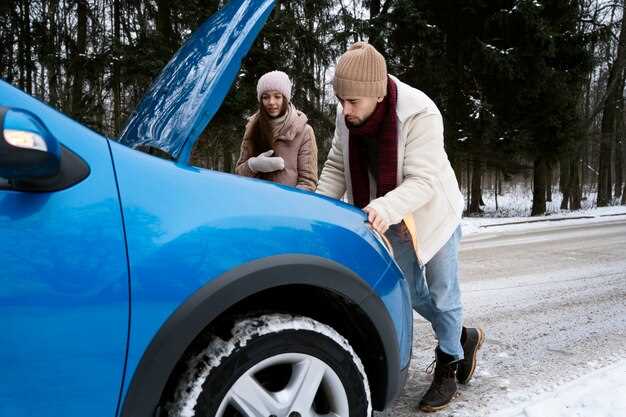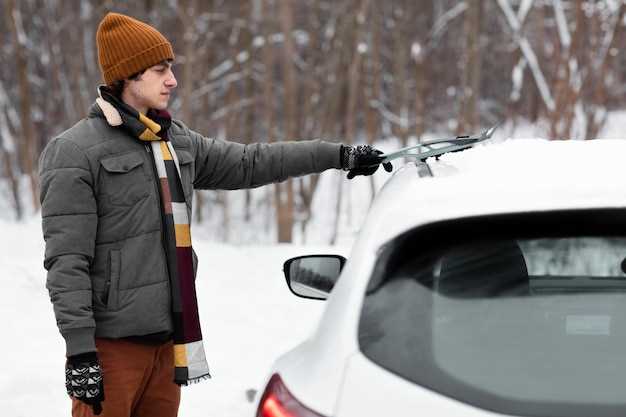
When faced with severe weather conditions, particularly cold weather, proper car care becomes essential for safety and performance. Extreme temperatures can significantly affect various aspects of your vehicle, from the engine to the battery. Understanding how to prepare and maintain your car during these challenging times can prevent breakdowns and ensure reliable transportation.
Cold weather poses unique challenges that demand proactive measures. Motor oil thickens in low temperatures, potentially leading to sluggish engine performance. Additionally, tire pressure can drop, impacting traction and handling. It’s crucial to stay informed about these issues and implement care strategies that will keep your vehicle in optimal condition.
Regular maintenance is key to ensuring your car can withstand the harsh elements. From antifreeze levels to battery health, every aspect of your vehicle needs thorough inspection prior to the onset of winter storms. In this article, we will explore practical tips and best practices for car care that will help you navigate severe weather conditions with confidence and peace of mind.
Preparing Your Vehicle for Cold Weather Challenges

Cold weather can significantly affect your vehicle’s performance and safety. To ensure your car is ready to face freezing temperatures, take the following steps:
Check the Battery: Cold weather can reduce battery capacity. Test your battery’s charge and consider replacing it if it is over three years old. Clean any corrosion from terminals to maintain good connections.
Inspect the Antifreeze Levels: Antifreeze is crucial for preventing the engine from freezing. Ensure your coolant system is filled with the appropriate mix of antifreeze and water, typically a 50/50 ratio. This mixture helps maintain a lower freezing point.
Prepare the Tires: Cold weather can affect tire pressure, so check it regularly. Ensure your tires are properly inflated and consider switching to winter tires if you frequently encounter snow and ice. Winter tires provide better traction under cold conditions.
Change the Oil: Using the correct oil viscosity is vital in cold weather. Check your owner’s manual for recommendations. Consider switching to synthetic oil, which performs better in extreme temperatures.
Replace Wiper Blades and Fluid: Ensure your wiper blades are in good condition and replace them if they show signs of wear. Use winter-specific windshield washer fluid that won’t freeze easily.
Prepare an Emergency Kit: Prepare a winter emergency kit containing essential items like a blanket, flashlight, water, non-perishable snacks, a first-aid kit, and a shovel. Having these supplies can be a lifesaver in case of breakdowns or accidents.
Keep the Fuel Tank Full: A full tank helps prevent fuel lines from freezing and provides extra weight for better traction. In addition, having a full tank ensures you can run the heater if you get stranded.
By taking these steps, you can enhance your vehicle’s reliability and performance in cold weather, ensuring safety and comfort during winter travels.
Maintaining Optimal Performance During Extreme Heat

Extreme heat can significantly affect your vehicle’s performance and longevity. To ensure your car runs smoothly even in scorching weather, follow these essential tips:
- Check Fluid Levels: High temperatures can lead to fluid evaporation. Regularly inspect and top off the following:
- Engine oil
- Coolant
- Brake fluid
- Windshield washer fluid
- Inspect the Cooling System: Ensure your radiator, hoses, and thermostat are functioning correctly. A malfunctioning cooling system can cause overheating.
- Monitor Tire Pressure: Heat increases tire pressure, which can lead to blowouts. Check tire pressure regularly, especially before long trips.
- Use the Air Conditioning Wisely: Utilize the air conditioning to maintain a comfortable cabin temperature but avoid overusing it. This can strain the engine.
- Park in the Shade: Whenever possible, park your vehicle in shaded areas or use sunshades to protect the interior and keep the engine cool.
- Check Battery Health: Extreme heat can weaken batteries. Inspect your battery regularly for corrosion and ensure it holds charge effectively.
- Be Mindful of Engine Temperature: Keep an eye on the temperature gauge. If it exceeds the normal range, pull over and let your engine cool down.
- Avoid Using Engine ‘Cold Start’: During hot weather, excessive idling can cause stress on the engine. Start your vehicle and drive gently instead.
By following these practices, you can help maintain optimal performance of your vehicle during extreme heat, ensuring a reliable and safe driving experience.
Emergency Supplies and Precautions for Severe Weather Driving
Driving in severe weather conditions demands careful preparation to ensure safety on the road. One of the first steps is to equip your vehicle with essential emergency supplies. A comprehensive emergency kit should include items such as a first aid kit, flashlight with extra batteries, warm blankets, non-perishable food, bottled water, and a portable phone charger. These supplies can be crucial during unexpected situations, especially in cold weather.
In addition to an emergency kit, consider carrying a snow shovel and ice scraper to manage snow buildup or clear your windows. Jumper cables are also vital, as cold temperatures can significantly impact your battery’s performance. Keep a set of flares or reflective triangles in your trunk to alert other drivers if you are stranded or in need of assistance.
It is equally important to check your vehicle’s condition before braving severe weather. Ensure that your tires are properly inflated and have adequate tread depth for traction on icy roads. Regularly inspect your brakes and windshield wipers, as these can make a significant difference in maintaining visibility and control in adverse conditions.
Furthermore, always inform someone about your travel plans, especially when driving during extreme weather. Keeping your fuel tank at least half full can prevent your gas lines from freezing and ensure you have enough fuel to stay warm if you become stranded. Finally, avoid sudden maneuvers and reduce your speed to adapt to changing weather conditions, maintaining a safe distance from other vehicles on the road.



